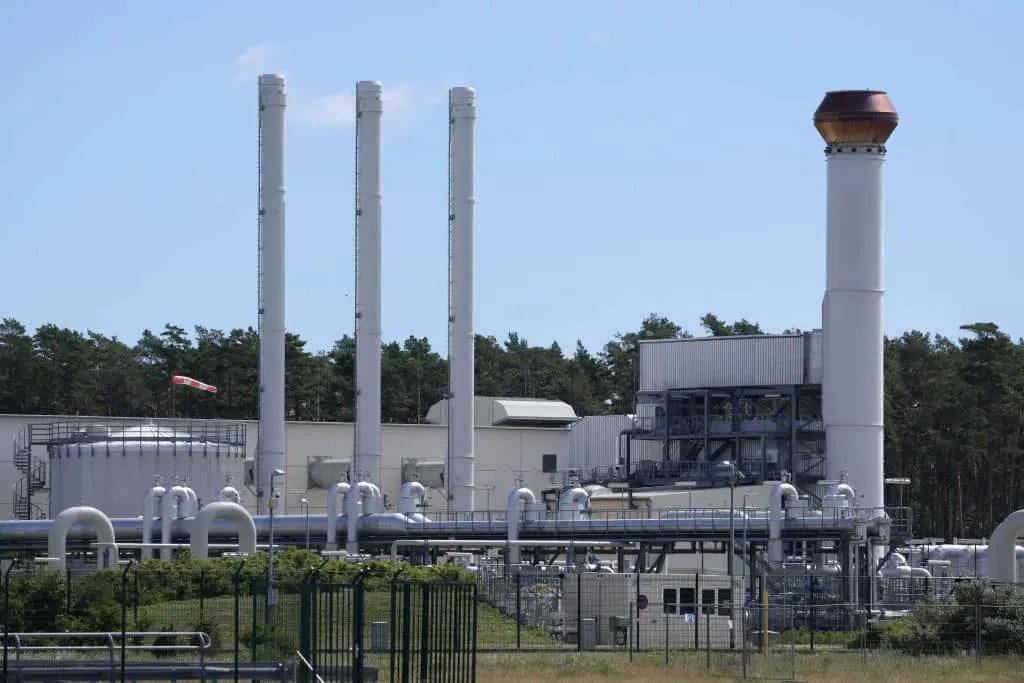Is Europe’s chilly winter destined to become another Millennium bug – a much-feared disaster that never transpires? Only a few weeks ago wholesale gas prices were surging, leading to predictions of blackouts, rationing and people unable to heat their homes. Throughout August, analysts produced forecasts (extrapolated from wholesale gas prices) which showed eye-watering energy prices throughout winter and spring. Governments reacted by hurriedly announcing extremely expensive schemes to cap prices for consumers. This, in part, contributed to the rapid fall of Liz Truss as markets panicked that her government would be unable to fund her £100 billion plus energy price guarantee.
Yet, since then, wholesale gas prices have plummeted. Yesterday, they fell below 100 Euros per MWh for the first time since June – less than a third of their peak in August. It is possible that the government’s energy price guarantee – which remains in place until April, when the Chancellor suggests it may be replaced with a less-generous scheme – will end up costing taxpayers nothing at all.
Was the spike in gas prices in the summer a result of a panicked effort to stock up with gas?
So, what is going on? Oil and gas prices have always been very sensitive to minor changes in the balance between supply and demand – and that is exactly what is happening now. In preparation for this winter, European countries have been rapidly filling their gas storage facilities with liquified natural gas (LNG) imported by ship from Qatar, the US and elsewhere. Those facilities are now reported to be virtually full. The latest phenomenon is LNG ships queuing off European coasts waiting to unload their cargoes – and being kept waiting because there is a shortage of storage space and facilities to unload. There are believed to be around 50 such ships currently at sea off Europe.
At the same time, demand for gas is significantly lower than in recent years – around seven per cent lower than the average for the past three Octobers. This is, in part, due to consumers being more careful with their energy usage in reaction to higher prices and governments instigating deliberate demand-reduction measures. The EU has agreed to try to cut consumption by 15 per cent this winter. Energy-hungry plants like steelworks have been ordered to lower production. It also helps that western Europe has enjoyed an especially mild October.
The question is: what happens now? Was the spike in gas prices in the summer a result of a panicked effort to stock up with gas, or will wholesale prices start to rise again as the weather inevitably eventually turns colder and the energy storage facilities begin to run empty? On the positive side, Europe is hurriedly beefing up its facilities for offloading and re-gasifying LNG. Germany, for example, has developed five floating LNG terminals this year. That should go some way to replacing the loss of Russian gas.
However, importing LNG by ship is a more expensive process than importing via pipeline – around 10 per cent of the energy is lost in the process of liquifying it and then degasifying it. Therefore, even if Europe can succeed in replacing Russian gas entirely with LNG, we can’t necessarily expect gas prices to return to what they were before this year’s crisis. At 100 Euros per MWh, wholesale gas prices are still more than twice what they have been for most of the past decade. There is also the matter of the harm wrought on European economies by high gas prices this year. Will production driven abroad by high energy prices ever return?
But for the moment, it appears as if some of the grim predictions for the winter of 2022/23 may have been exaggerated. The market has done its work and corrected the imbalance between supply and demand. The winter is not likely to be as chilly as it was feared only a few weeks ago.







Comments